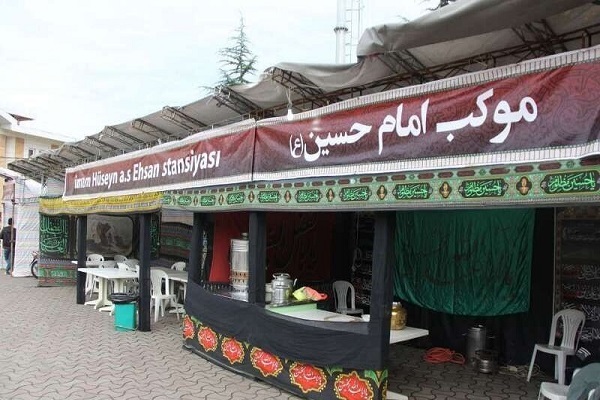AhlulBayt News Agency: An Iranian official said more than 1,800 Mawakib have been set up in Iraq in preparation for the Arbaeen procession.
Secretary of the Arbaeen Headquarters Mohammad Taqi Baqeri said they are in the holy cities of Najaf, Karbala, Kadhimiya and Samarra.
He added that 1,200 Mawakib have also been launched in Iran’s border areas to serve those leaving the country for Iraq during the Arbaeen season.
He also said that providing services to the pilgrims will continue until the 23rd day of the month of Safar (September 20).
Mawakib are resting places with special facilities and services for pilgrims set up on roads leading to Karbala and elsewhere during the pilgrimage.
The Arbaeen mourning ceremony is one of the largest religious gatherings in the world.
It marks the 40th day after Ashura, the martyrdom anniversary of the grandson of Prophet Mohammad (PBUH), Imam Hussein (AS). This year’s Arbaeen falls on September 17.
Each year, a huge crowd of Shias flock to Karbala, where the holy shrine of Imam Hussein (AS) is located, to perform mourning rites.
The pilgrims, mainly from Iraq and Iran, travel long routes on foot to the holy city.
/129
Secretary of the Arbaeen Headquarters Mohammad Taqi Baqeri said they are in the holy cities of Najaf, Karbala, Kadhimiya and Samarra.
He added that 1,200 Mawakib have also been launched in Iran’s border areas to serve those leaving the country for Iraq during the Arbaeen season.
He also said that providing services to the pilgrims will continue until the 23rd day of the month of Safar (September 20).
Mawakib are resting places with special facilities and services for pilgrims set up on roads leading to Karbala and elsewhere during the pilgrimage.
The Arbaeen mourning ceremony is one of the largest religious gatherings in the world.
It marks the 40th day after Ashura, the martyrdom anniversary of the grandson of Prophet Mohammad (PBUH), Imam Hussein (AS). This year’s Arbaeen falls on September 17.
Each year, a huge crowd of Shias flock to Karbala, where the holy shrine of Imam Hussein (AS) is located, to perform mourning rites.
The pilgrims, mainly from Iraq and Iran, travel long routes on foot to the holy city.
/129

